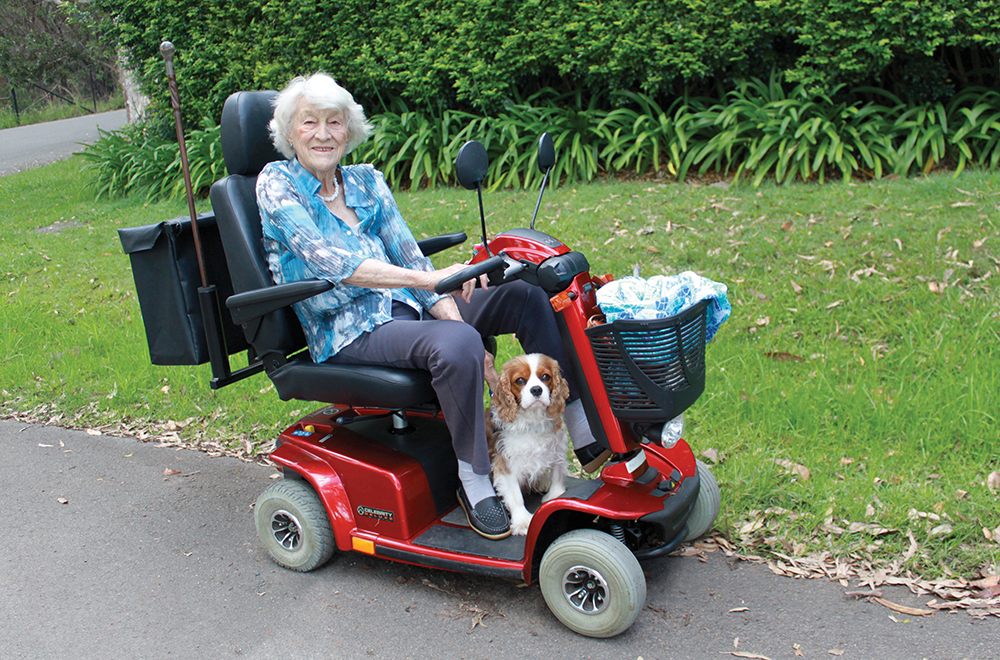Austroads has released its report on Motorised Mobility Devices with several recommendations in response to feedback to the MMD Discussion Paper. However, Austroads has become aware of a number of reviews that are underway or planned, which have the potential to impact the outcome of this project, Austroads CEO Dr Geoff Allan told F2L.
“The report therefore recommended that adoption of a technical specification for MMDs not be progressed due to the possible results from those other reviews,” he said.
Austroads is also monitoring other external reviews which include:
- A review scheduled by Standards Australia of the Technical Specification
- The modernisation of the Disability Standards for Accessible Public Transport 2002 (DSAPT) which is being led by the National Accessible Transport
- A review of the Therapeutic Goods (Excluded Goods) Determination 2018 by the Therapeutic Goods Administration which will produce a policy position as the next step.
Austroads stakeholders, that included motorised mobility device user representative groups, government and industry representatives expressed opposition to national registration and licensing arrangements for MMDs and their users. As a result, the report recommended that no further action be taken with respect to registration and licensing schemes. The report also explored options for third party insurance.
Among the recommendations were that: The Australian Road Rules should be amended to align with the unladen mass limits in the Technical Specification. This would increase the unladen mass limits for mobility scooters to 170kg and remove the unladen mass limits for powered wheelchairs.
Further details follow:
Stakeholders expressed concern that the current unladen mass limits are outdated and inconsistent and do not reflect the variety of MMDs on the market. Most responses supported progressing amendments to Australian Road Rules to align the unladen mass limits for MMDs to the requirements in the Technical Specification. Stakeholders highlighted that this would support a harmonised approach across Australia.
Some stakeholders opposed the application of a maximum weight limit for motorised scooters and suggested unlimited mass limits be applied to all MMDs. This is because of additional vital supports, such as ventilators and custom postural supports, may lead to weights exceeding 170kg. Stakeholders further commented that 170kg limit does not take into account the size and weight of larger users and therefore advocated for an uncapped limit similar to powered wheelchairs. Whilst this has been acknowledged, the Technical Specification purposefully increased maximum unladen mass for motorised scooters.
The removal of the maximum unladen mass for traditional motorised wheelchairs recognised that users of such devices have no alternative for mobility on public infrastructure. It would be discriminatory to prevent motorised wheelchair users lawful access to paths.
Most stakeholders opposed registration arrangements highlighting that they place additional restrictions on devices that ensure the mobility of those whose mobility is already limited. It was also noted that no other similar type of pedestrian device, such as personal mobility devices, requires registration. Stakeholders also raised various issues such as administration costs, enforcement difficulties and the lack of legitimate road safety benefits associated with such arrangements.
Most stakeholders strongly opposed licensing arrangements, highlighting that it would be discriminatory to MMD users under the traditional driver licence age or those with cognitive disabilities. It was noted that it is inappropriate to test these users in a similar fashion to motor vehicle licensing. Stakeholders further raised concerns that licensing for MMD users would be inconsistent with other pedestrian groups who use other types of devices such as, two wheeled electric scooters. Stakeholders clearly advocated that licensing arrangements are discriminatory to an already marginalised population.
The MMD Discussion Paper sought feedback on four options for adoption of the Technical Specification with the Industry Driven Adoption that involves the MMD industry adopting the Technical Specification as an industry best practice standard, receiving the most support.
However, stakeholders suggested that this option could only be successful if supported by both government and industry. Several stakeholders placed value on this option requiring retailers to inform their customers of a device’s capabilities. The onus of ensuring compliance with the Technical Specification would be placed on industry rather than the consumer.

